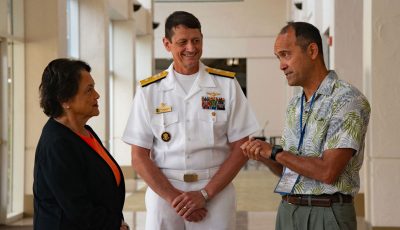In this place
The untimely passing of several close friends still weighs heavily on me. There were no good-byes and the news of their demise came like the anomaly of marching storm clouds on a sunny day…dreary, dark and out-of-place—raindrops slid off my face. If only I had known—a final drink perhaps, raised with and in honor of the lives uniquely their own. Alas, in the grand scheme of all things human, mortality reigns supreme. One way or another, we all fall down, ashes to ashes, dust to dust.
Like so many before them, my friends were here one day and gone the next, never to be seen again. I am reminded that our time here is limited and that death is a natural part of the human experience. Sad, but true.
Maybe it’s my age, but more and more I find myself pondering “the meaning of life” or at least the measure of a good life and what it means to be a good man—greatness measured, if you will.
The late Maya Angelou said, “I’ve learned that people will forget what you said, people will forget what you did, but people will never forget how you made them feel.” And that’s really it, isn’t it? In the end, all we are left with is our feelings. And, more often than not, it is the way we feel rather than the way we think that drives us (MANDT). How often have you heard, “It’s not what you said, but how you said it” (T. Geels)?
As advocates at the Northern Marianas Protection & Advocacy Systems, Inc., we are often asked if we can “provide training on how to work with and/or treat people with disabilities.” To the best of our abilities, we gladly oblige such requests. Our message is simple enough, “Treat people with disabilities the same way you would treat anyone else and charge through barriers of discrimination.” We know all too well the challenging behaviors associated with people who have certain types of disabilities, but civility remains our minimum standard for treatment of people in general (disability or otherwise).
A colleague put it best when she said that this “basic human concept tends to get lost or forgotten amidst the busyness of our daily professional and personal lives. We get so immersed in the little details of our duties and responsibilities that we neglect the basics—treating every individual with dignity and respect” (T. Evangelista). Can you imagine how it might feel if everyone you met treated you with dignity and respect?
We believe in the MANDT system for conflict resolution, which teaches, among other things, that we should “support people, not just their behaviors.”™ MANDT further teaches that building healthy relationships is what facilitates a culture that provides the emotional, psychological, and physical safety needed to teach new, positive behaviors that can replace the behaviors labeled “challenging.”
My late friends left me with a feeling that in their presence I could always say, “In this place and with these people, I am safe™” (MANDT). Rest in peace fellas…until we meet again.
For more information on the MANDT system of conflict resolution or about dignity and respect for all, feel free to contact the Northern Marianas Protection & Advocacy Systems, Inc. (NMPASI) at (670) 235-7273/4 [tel.] / 235-7275 [fax] / 235-728 [tty] or via the web at www.nmpasi.org. (By JIM RAYPHAND)



























